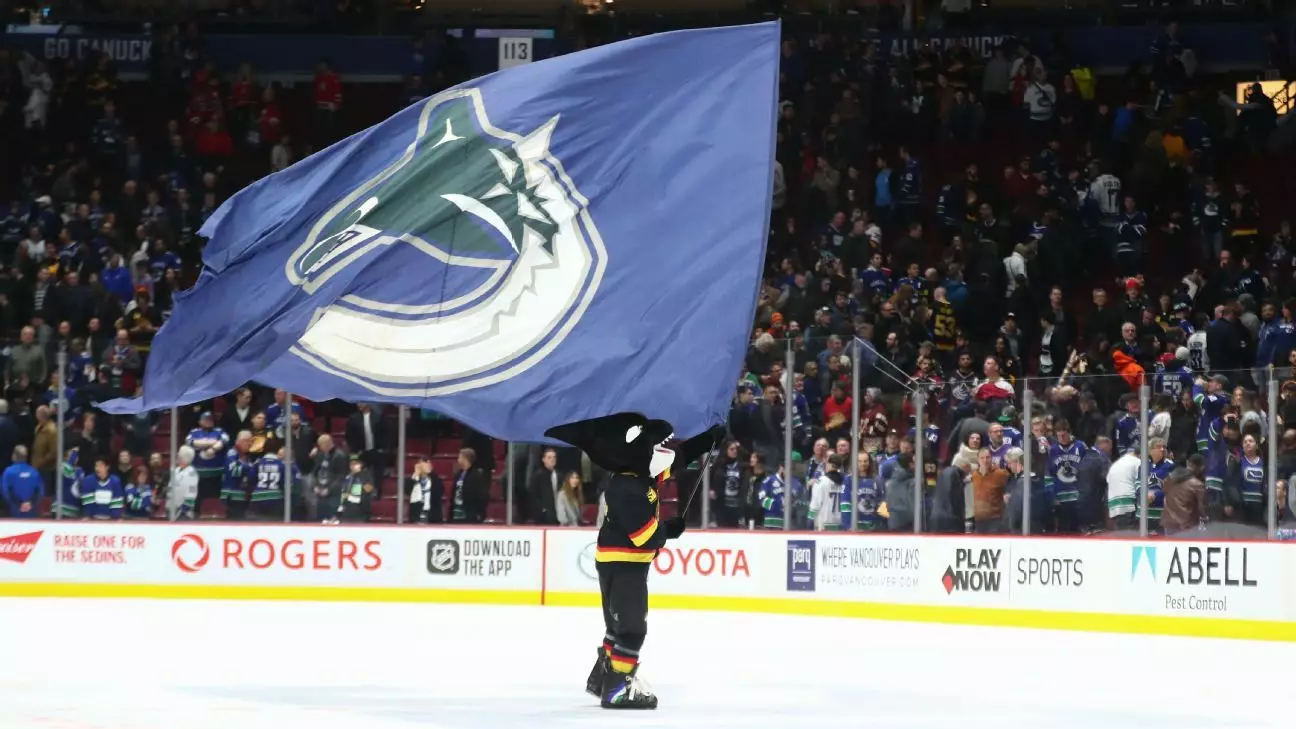On a pivotal day in Vancouver, the Canucks organization announced the elevation of Adam Foote to head coach, marking a significant shift in leadership for the team. At 53, Foote, who has spent the past three seasons as an assistant under Rick Tocchet, brings a profound knowledge of both the game and the team’s dynamics. While his previous head coaching experience was limited to a single season with the WHL Kelowna Rockets, his rich playing history in the NHL, particularly his tenure with the Colorado Avalanche, grants him a unique perspective on both player development and team strategy.
The Canucks have grappled with inconsistency in recent seasons, failing to secure a playoff berth after a promising second-round run in 2023-24. In this context, Foote’s appointment can be seen as a calculated decision to restore the team’s competitive edge and re-establish its identity. General Manager Patrik Allvin stressed Foote’s excellent communication skills and recognized track record of earning players’ respect as vital elements to the team’s future success.
Foote’s Unique Qualifications
Foote’s transition from a respected player to a coaching role has sparked interest within the hockey community. His dual Stanley Cup victories with the Avalanche serve as testament to his competitive spirit and understanding of high-stakes situations. Renowned as one of the NHL’s foremost defensive players during his 19-year career, Foote cultivated a reputation for his robust physical play and unwavering commitment. These attributes have begun to translate into his coaching philosophy, as seen during his time guiding the team’s defensemen, which coincided with the two most successful seasons of Quinn Hughes’ career.
Under Foote’s mentorship, Hughes not only clinched the Norris Trophy in 2023-24 but also solidified his place as a key player for the Canucks. This existing rapport between coach and captain is likely to play a crucial role in shaping the team’s defensive strategies going forward. Foote understands the nuances of the game that transcends traditional coaching methods, prioritizing communication and honesty, vital ingredients for any successful coaching roster.
The Departures and Future Prospects
The decision to part ways with Tocchet, despite efforts to offer him an extension, underscores the organization’s urgency for renewed vigor. Tocchet’s departure, rumored to pave the way to the Philadelphia Flyers, reveals the underlying tension and the pressure often present within NHL teams seeking glory. Foote’s ascent is an internal nomination, deliberately aimed at stabilizing a team yearning for continuity and commitment to its foundational goals.
As the landscape shifts, the Canucks face pressing questions regarding their roster. The future of star players like Brock Boeser and Elias Pettersson looms large, with discussions centered around contract renewals and performance optimization. Moreover, there are concerns about the potential departure of Quinn Hughes, who has expressed an interest in playing alongside his brothers in New Jersey. Foote’s familiarity with the team’s existing framework may provide the necessary stability to retain key players navigating these transitions.
The Road Ahead
Looking ahead, Foote’s primary challenge will be resurrecting the Canucks’ playoff aspirations amidst a backdrop of uncertainty. With only two playoff appearances over the last decade, establishing a winning culture has never been more critical. The hiring of Foote reflects a broader organizational strategy centered around cultivating talent from within, emphasizing trust and established relationships over the often tumultuous nature of external hires.
The Canucks’ fanbase, still reeling from years of mediocrity, deserves to see substantial progress. With Foote at the helm, there’s potential for a new era of Canucks hockey that not only fosters loyalty and retention among its players but also sparks hope for long-term success. The franchise’s willingness to promote coaching talent from its ranks indicates a shift towards introspective growth, aiming to create a resilient team that can thrive in high-pressure situations.
While critics may voice skepticism regarding Foote’s limited head coaching experience, the path he paved as an assistant coach offers compelling evidence of his capacity to drive the Canucks forward. His journey as a player and now a coach suggests a commitment to building a team centered around strength, determination, and most importantly, a shared vision for success.

